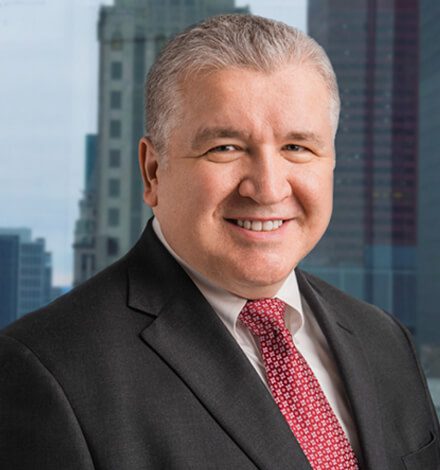Federal Court Refuses to Let Parents Opt Their Children Out of LGBT Instruction At School
The Mongomery County Board of Education (the “Board”) added books to the language arts curriculum for elementary school students (K through 8th Grade) that address issues such as sexual orientation, drag shows, and transgenderism. Under the new language arts curriculum, teachers would, in some lessons, read these books to children and children would read these books themselves. The teachers were also given instructions on how to answer questions that children or parents raised concerning these books. When this curriculum change was first made, parents were given the right to opt their children out of any language arts lesson in which these books were used, which was consistent with guidelines allowing parents to opt their children out of lessons involving sexual activity, sexual orientation, and transgenderism. After the first year, however, the Board abruptly changed its policy and prohibited any further opting out. A number of parents sued the Board, claiming that the prohibition on opting their children out of this type of instruction violated their First Amendment right to the free exercise of religion, and they moved for a preliminary injunction: the case is entitled Mahmoud v. McKnight. The lower court denied the parents’ motion, and the Fourth Circuit appellate court affirmed the decision.
School districts, state legislatures and courts have long held that parents have the right to opt their children out of classes that teach sexual education, sexual orientation and other types of sexuality. This right is rooted in constitutional doctrines such as parental rights under the Due Process Clause and the free exercise of religion clause contained in the First Amendment. States have typically respected these rights by passing laws the expressly allowed parents to out their children out of certain classes or lessons. Some parents hold strong religious views concerning sexual orientation and transgenderism and view what is taught in certain schools as antithetical to their religious beliefs. These parents do not want their children taught about sexual orientation and transgenderism in school, and instead want to have these topics presented to their children as part of their religious education. The decision in Mahmoud v. McKnight reflects the escalating conflict between some school boards and parents concerning the teaching and affirming of certain types of sexual orientation and transgenderism.
Until recently, it was generally accepted that parents had the right to opt their children out of sexual education classes offered by public schools. As sexual education began to focus more heavily on sexual orientation and transgenderism, certain school boards had less tolerance towards parents wanting to opt their children out of such classes. A growing number of school boards and activists want children in public schools to learn about sexual orientation and transgenderism in a way that affirms certain lifestyles and activities.
To address the opt out problem, some school boards adopted the strategy of embedding instruction on sexual orientation and transgenderism in standard curriculum classes such as language arts. It is much easier for parents to opt their children out of a formal sex education class than having to keep track of what is going to be taught in a language arts class on a day-to-day basis. When sexual orientation and transgenderism is made part of a language arts curriculum, for example, parents must pay close attention to every communication they receive from the school. Further, parents are then also dependent on getting such information from a particular teacher who may have strong ideological views against providing the information to parents.
In Mahmoud v. McKnight, the Board chose to embed sexual orientation and transgenderism instruction into language arts lessons by adding a number of different books to the language arts curriculum. One of the books at issue was titled “Pride Puppy” that is described as an “alphabet primer” for kindergarteners. The book “invites readers to search for depictions of terms like ‘[drag] queen,’ ‘[drag] king’ and ‘intersex’ among other vocabulary words.” Further, the “three- and four-year-old audience [for Pride Puppy] is invited to look for items such as . . . ‘leather, ‘lip ring,’ ‘[drag] queen,’ and ‘underwear.’” Overall, the storybooks “as a whole express their authors’ views on sexual orientation and gender identity by portraying homosexual, transgender, and non-binary characters in various situations.”
The books, however, were only one part of the new program. The Board developed questions and answers that teachers could use to answer questions concerning the books that students or their parents might have. The Board, for example:
“also provided materials for teachers and administrators to use in responding to questions from students. . . . The materials also indicate that if a student says that ‘a girl . . . can only like boys because she’s a girl,’ the school employee can ‘[d]isrupt the either/or thinking by saying something like: actually, people of any gender can like whoever they like. . . . How do you think it would make_(character’s name)_ to hear you say that? Do you think it’s fair for people to decide for us who we can and can’t like?’ . . . And if a student asks what it means to be transgender, the school board proposed this response: ‘When we’re born, people make a guess about our gender and label us ‘boy” or ‘girl’ based on our body parts. Sometimes they’re right and sometimes they’re wrong. . . . Our body parts do not decide our gender. Our gender comes from our inside.’”
Taken together, the books and the question-and-answer materials show that the language arts program was modified to do much more than just teach children how to read. It was designed to address, in a specific ideological way, issues surrounding sexual orientation and transgenderism. For example, when a teacher “disrupts” young children from viewing boys and girls as a sex binary, the teacher is actively promoting the viewpoint that gender is “fluid,” and that boys and girls can change their sex. These viewpoints are sharply at odds with what many Christians and Muslims believe. When a teacher asks an elementary school child “[d]o you think it’s fair for people to decide for us who we can and can’t like,” in the context of a discussion on sexual orientation, the teacher is challenging the strongly held religious views of many parents.
The plaintiffs in this case claimed that the Board’s refusal to let them opt-out their children from language arts lessons that used these books and training material violated their First Amendment right to the free exercise of religion. The plaintiffs claimed that the Board was effectively coercing and indoctrinating their children into a belief system that is contrary to their sincerely held religious beliefs.
There was no dispute that (a) the LGBT books were made part of the curriculum for kindergarten through middle school, (b) the question-and-answer materials were a resource for teachers to use with children as part of the curriculum, and (c) parents were not allowed to opt their children out of lessons that incorporated those materials. On their side, the parents did not challenge the Board’s right to have the LGBT books added to the language arts curriculum, nor did the parents ask the court to control how a teacher could use those books. The only question was whether parents had the right to opt their children out of these lessons.
The Fourth Circuit held that the parents had failed to present evidence that their children would face any “coercion” with respect to their beliefs concerning sexual orientation and transgenderism if they attended language arts classes in which the LGBT books were used. The Fourth Circuit acknowledged that the Board would violate the parents’ First Amendment rights, if the school were to coerce their children into believing concepts contrary to the parent’s and children’s sincerely held religious beliefs. The Fourth Circuit, however, insisted that the parents would have to provide evidence as to how the teachers were actually presenting the sexual orientation and transgender materials in the classroom.
There are a number of problems with the Fourth Circuit’s reasoning. First, forcing parents to show that a teacher’s actions in a classroom constituted “coercion” when teaching sexual orientation and transgenderism to children imposes an unrealistic litigation burden on parents. A court can vitiate a legal right by forcing the plaintiff to prove facts that are essentially undiscoverable. For example, when a teacher reads a book about transgenderism to a classroom full of first graders and makes positive statements about transgenderism to the children there is no one recording what was said. It is unlikely that young children will be able to recall the details of what was told to them in a class, months, or even years, later. This means that unless the teacher writes the comments down or tells the parents what was said, it is almost impossible to prove what occurred in the classroom.
Second, the Fourth Circuit’s holding tells parents that they can do nothing about a school teaching their children to affirm different sexual orientations and transgenderism until after the children are exposed to such instruction. This is not the correct constitutional standard, nor the correct standard for a preliminary injunction. The purpose of a preliminary injunction is to preserve the status quo and to prevent the irreparable harm the plaintiff is protesting against. In Mahmoud v. McKnight, the Board changed the language arts curriculum to teach young children about sexual orientation and transgenderism in a certain light, and developed question and answer guidelines for teachers to use when addressing those topics. The constitution does not require that parents wait until after their children are pushed to accept these concepts before they are able to take action.
The Fourth Circuit stated that parents could counteract any indoctrination by the school by talking to their children about sexual orientation and transgenderism when they are home. The court’s argument is inconsistent with parents having any opt-out rights. A school board can now refuse to let parents opt their children out of a sexual education class because the parents can discuss sexual education at home. The fallacy in the Fourth Circuit’s reasoning is that the ability of parents to talk to their children after the fact does not nullify the earlier First Amendment violation. The argument is also ironic, because parents having to convince their children not to accept what they were taught in school concerning sexual orientation and transgenderism is proof of the First Amendment violation, not of its absence.
Third, the Fourth Circuit seemed to have forgotten that the issue was whether parents could opt their children out of certain lessons. The issue was not whether those lessons would be taught in some inappropriate manner. The opt-out right is triggered by the content of the lesson: sexual orientation and transgenderism and the Board’s endorsement of certain viewpoints with respect to those issues. The opt-out does not exist if a parent has to wait and see how the topics are actually addressed by the teacher. Nor is it a court’s role to micromanage how teachers conduct a lesson. If a school or a teacher are going to broach certain topics, parents have a right to have their children excused from the lesson.
Finally, the court’s focus on the possible disruption to the school caused by parents opting their children out of certain lessons misses the fundamental point of the case and the Board’s strategy. It is not the parents that made opting out more difficult, it was the Board’s decision to embed sexual orientation and transgender instruction into language arts instruction. The Board had to know that embedding sexual orientation and transgender instruction into the language arts curriculum would make it more difficult to honor parental opt-out rights. If the Board nonetheless went ahead with the curriculum change, it was the Board’s decision to change the curriculum that violated the parent’s constitutional rights. The Board should not be able to justify its decision by pointing to the problems created by the decision.
Overall, the Fourth Circuit’s decision undermines the existence of any First Amendment right of parents to opt their children out of certain lessons at school. The lawsuit was not triggered by the Board’s incorporating sexual orientation and transgenderism into the curriculum, but by the Board’s subsequent decision, a year later, to prohibit opt-outs. The Fourth Circuit’s decision throws into doubt the ability of parents to assert any constitutional right to opt their children out of certain classes or lessons. This is a radical departure from established law.
The case of Mahmoud v. McKnight underscores a critical juncture in the discourse surrounding parental rights and educational autonomy. The Fourth Circuit’s ruling effectively dilutes the weight of the First Amendment protections afforded to parents seeking to shield their children from instruction that conflicts with their deeply held religious beliefs. At The Law Offices of George M. Sanders P.C., we recognize the paramount importance of protecting these constitutional rights. We are committed to advocating for parents’ ability to make educational decisions in alignment with their values and beliefs. As we navigate the complexities of such cases, our firm remains steadfast in defending the principles of freedom of belief and religious expression, advocating relentlessly on behalf of our clients to uphold these fundamental liberties.
Previous Post
Federal Court Holds That Non-Violent Felons Have Second Amendment Rights
In the late 1930s, Congress made it unlawful for individuals convicted of certain violent felonies to possess a firearm. This was the first time...
NEXT Post
The Supreme Court Addresses When State Regulators Move From Advocacy Of Their Positions to Censorship
The First Amendment is a bulwark against censorship efforts by federal, state and local governments. What is sometimes lost is that state governments, the...







